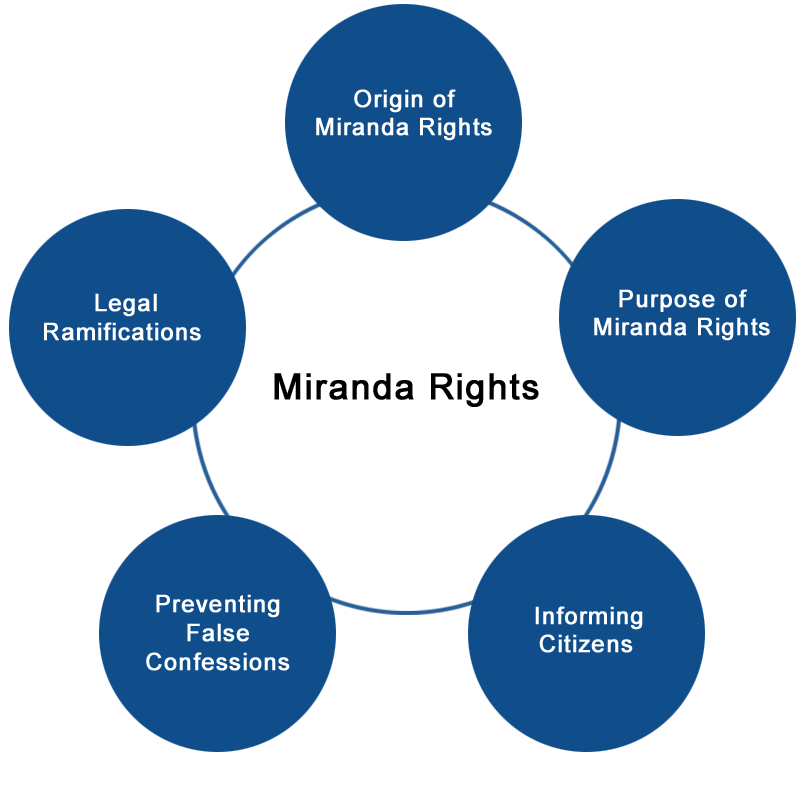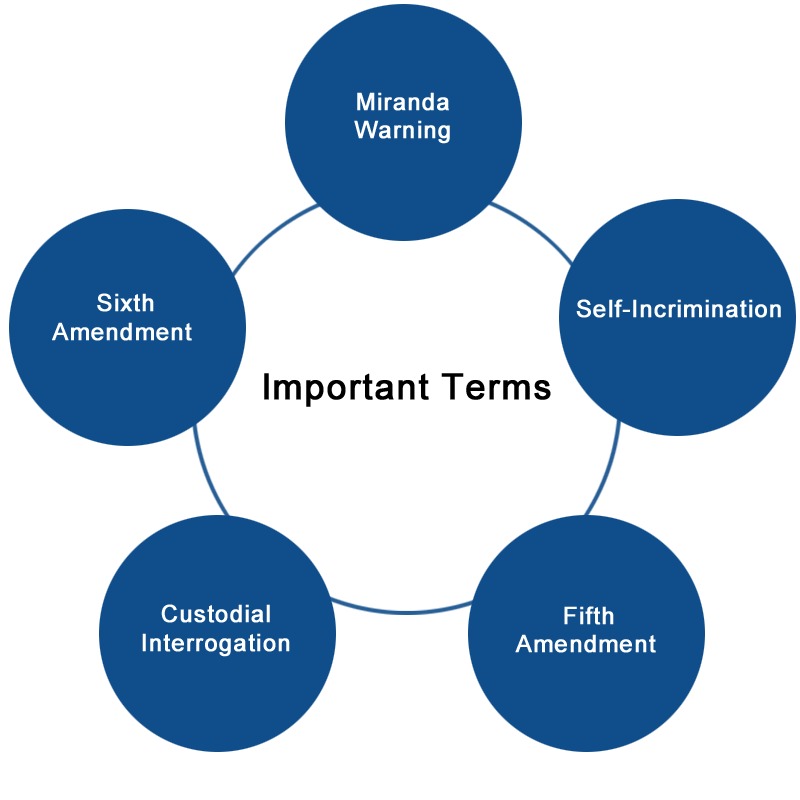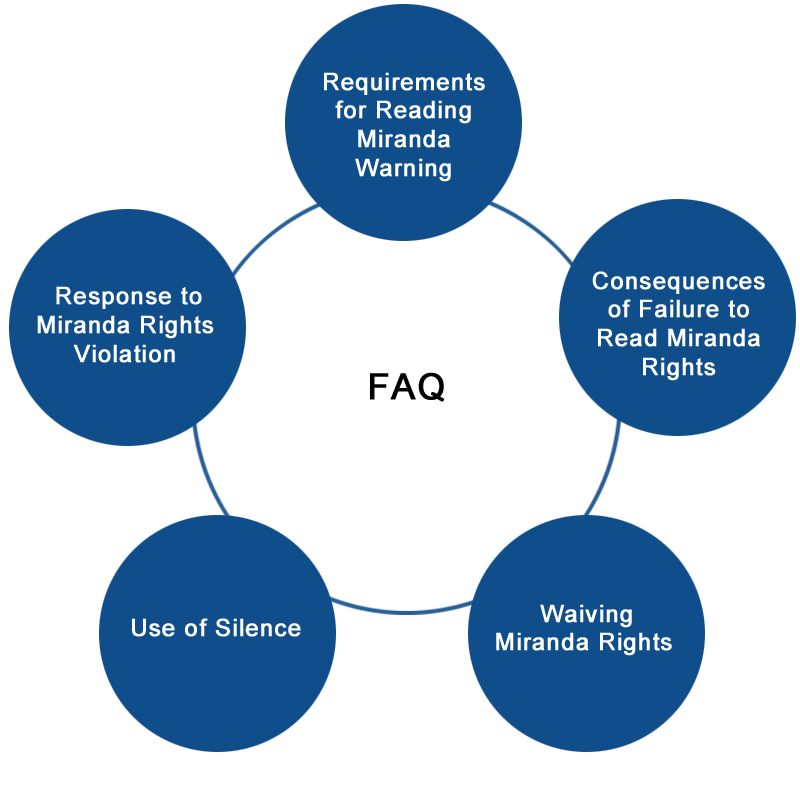
Miranda Rights in Louisiana
The concept of Miranda Rights as they are known in the United States began with the Supreme Court’s landmark decision in 1966’s Miranda v. Arizona case. Prior to this decision, citizens were not always aware that they were under no obligation to speak to police or that they could request the presence of a lawyer during questioning. In some cases, people confessed to crimes under pressure and without knowledge of their rights, leading to false confessions that were accepted by the courts as evidence.
With the establishment of the Miranda Warning after 1966, police were now required to inform citizens of their rights before questioning them. This not only gave citizens a better understanding of their constitutional rights, but it also helped protect those rights by securing them against false confessions.
The exact wording of the Miranda Rights can vary slightly from state-to-state, but U.S. law requires that every Miranda Warning highlight the following:
• You Have the Right to Remain Silent
Your Constitutional Rights state that you are not required to answer any questions from police, nor do you even have to say anything if you so choose. This protects citizens from inadvertently saying something that could hurt their legal defense later.
• Anything You Say Can and Will Be Used Against You in a Court of Law
This line serves as a reminder that your words can be admissible as evidence in a courtroom, shielding citizens from having innocent remarks misconstrued by law enforcement.
• You Have the Right to an Attorney
Trained to understand the law, having an experienced attorney represent you is vital during any situation where your rights are at risk. They can not only protect you, but they can also advise you on how best to conduct yourself to aid in your defense.
• If You Cannot Afford an Attorney, One Wil Be Provided for You
A fair legal process depends on legal representation for all citizens, not just those who can afford it. If you cannot afford an attorney, the court will assign you a public defender.
These four components ensure that citizens are safeguarded against law enforcement overreach, aware of their Constitutional Rights, and prepared to act in their own best interests. Failure on the part of law enforcement to read these rights at the time of arrest could potentially result in charges being dropped.

That said, Louisiana law does allow police to legally request basic information from citizens, such as name and address, without a Miranda Warning as this information is not part of a formal interrogation. Before they can ask any further questions, they must read the Miranda warning.
It may seem rude to remain silent if questioned, but it is your right as a citizen. And more than that, it’s a sound strategy, as remaining silent can benefit your case later, protecting you from legal jeopardy and possibly leading to a reduction in charges.

What if Law Enforcement Fails to Read a Miranda Warning?
In Louisiana, as in every other state, failure on the part of law enforcement to properly deliver your Miranda Rights prior to arrest or interrogation can have a massive impact on a subsequent criminal case against you. The specifics of that impact will depend on the circumstances of the case, but it could influence the outcome in several ways.
If you were arrested or subjected to police interrogation without proper Miranda warnings, any evidence collected by law enforcement can be suppressed or excluded by your attorney. Known as the exclusionary rule, this protects citizens against self-incrimination through their own statements. If those statements were important evidence in the case against you, it can significantly weaken the prosecution’s position.
That said, failure to read a Miranda Warning does not automatically result in charges being dismissed. If evidence outside of your own testimony is compelling enough, the case can still proceed. It does give your attorney an opportunity to strengthen your own strategy by eliminating statements from evidence, but the case will ultimately rely on other facts. These include the nature of the charges, other procedural errors and the existence of further evidence.
 Important Terms to Understand
Important Terms to Understand
There are several terms that come up frequently regarding a citizen’s Miranda Rights, and understanding them can play a vital role in protecting your rights.
Miranda Warning: The actual verbal warning issued by law enforcement prior to arrest or interrogation. Your understanding of these rights helps to safeguard you against unfair prosecution and self-incrimination.
Self-Incrimination: This covers everything from inadvertent admissions of guilt to the sharing of information which could be misinterpreted and used as evidence by the prosecution. These statements could be devastating to a criminal defense.
Fifth Amendment: The cornerstone of the Miranda Warning, the Fifth Amendment to the U.S. Constitution protects citizens from being “compelled in any criminal case to be a witness against himself.” This essentially codifies the right to say nothing during a custodial interrogation, protecting you from self-incrimination.
Custodial Interrogation: A custodial interrogation is a blanket term for any situation in which you are being questioned by police while being detained against your will.
Sixth Amendment: Another important aspect of the Miranda Warning is the right to an attorney, enshrined in the Sixth Amendment as the right “to have the Assistance of Counsel for his defense.” Legal counsel can ensure your rights are protected during the investigation, and that you have a clear understanding of your case.
 Frequently Asked Questions
Frequently Asked Questions
What are the requirements for reading a Miranda Warning?
A Miranda Warning is only required when police have a subject in custody (meaning the subject is not free to leave, similar to an arrest) and are interrogating them. In these situations, it must be read before any questions are asked.
What happens if law enforcement fails to read my Miranda Rights?
While it may not necessarily lead to your case being dismissed, failure to read your Miranda Rights could allow your attorney to suppress or exclude any statements made during interrogation.
Can I waive my Miranda Rights?
You can, which would allow you to make admissible statements without the presence of an attorney, but it must be a decision made voluntarily and with full awareness of the consequences.
Can my silence be used against me?
No. You have the Constitutional Right to decline answering any questions or making any statements to law enforcement. Making you aware of these rights, and your rights to legal representation, are the pillars of the Miranda Warning.
What should I do if law enforcement violates my Miranda Rights?
Your first step would be to contact your attorney and inform them of the violation, giving them the opportunity to exclude any statements you made.
Schedule a Free Legal Case Assessment
If you were questioned by police without first being read the Miranda Warning, you should be aware of the potential violation of your Constitutional Rights. If you feel like your rights were violated, your charges could potentially be reduced or dismissed by having evidence excluded. Schedule a free, confidential case assessment by submitting your contact information below.
Call (912) 351-8775 or Schedule a Free Case Evaluation Online





